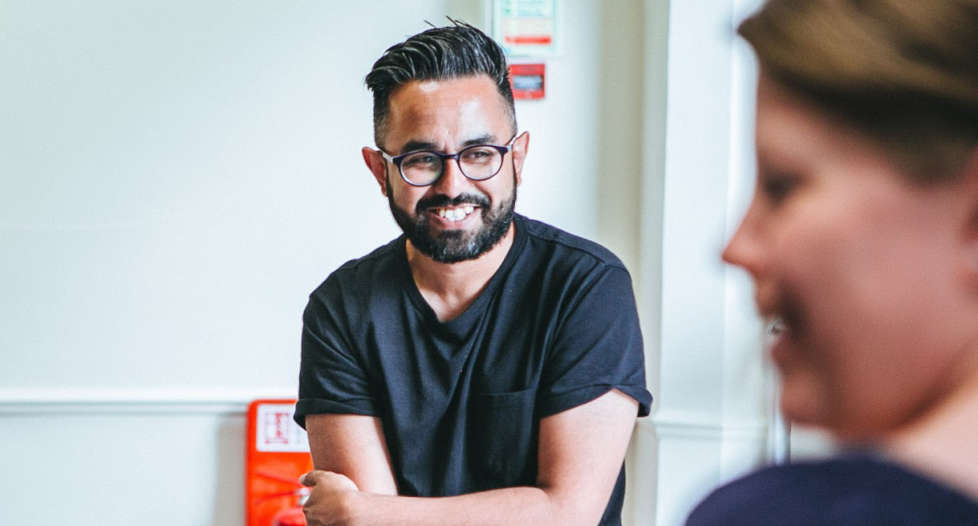Mental Health at Work
Helal's story
Being yourself is something easier said than done. We're all familiar with the stat that one in four of us will experience some form of mental ill health, but did you know one in six of us develop symptoms of mental ill health? Reflecting on how we think we feel and how we behave is a really important part of being aware of your own mental health.
My Story
I'll bring this to life for you; in the run up to Christmas - outwardly I was calm and happy to take lots of stuff on - inwardly I wasn't feeling the same way. Over the Christmas break, I had the opportunity to really reflect on the previous 3 months and summarised that I took on too much, both at home and work. I wasn't planning as much as I used to, there were lots of last minute moments and I was working every other evening to get things done.
I made a promise. A promise to trust in others more, a promise to take regular breaks and a promise to be more planned in how i get stuff done both at work and at home. Ultimately I made a promise to be me - I realised my state of mind not only affected me but those around me. I am taking incremental steps to help me get back to my best - being outwardly positive, more objective about things and encouraging others to take on stuff I would normally do.
There's no quick fix, some of things I did have helped. I deleted apps like instagram off my phone for the whole of January, I stopped my routine coffees in the morning and with the help of the boss I have drunk more water this month than I did in all of 2019!
I feel great. I know there will be bumps in the road ahead but I am pleased I have tackled the things that were most pressing in mind. I start my week asking myself how I am feeling and ask the same question at the end of the week.
Camelot Mental Health First Aiders
I consider it a privilege to be leading on our efforts to promote positive mental health at Camelot. We have around 15 Mental Health First Aiders here with the sole focus on being here to support Camelot people, listening with no judgement and encouraging them to talk and seek the right support and help they need.
As a community of mental health first aiders, we are working on an exciting programme of work to get the organisation talking more about this, through communications, events, videos and honest 'real chat' from blogs like this. Taking these incremental steps will start to break down barriers, hopefully get people talking and making sure it's ok to do this. Being the best version of yourself is what we all want to achieve, there's no reason why we can't do this at work. Luckily we are in a workplace which really supports this.
Time To Talk Day - Thursday 6th February
There are so many events in the calendar to talk about Mental Health. Time to Talk is no different. For me it's about the power of conversation, it could be a brief chat or a game of "Would you rather.." which is the campaign run by Mind and Rethink Mental Illness to get organisations to talk about mental health and breaking those barriers down. It's also National Lottery funded which has extra significance for me as it's an output of all the hard we do behind the scenes at Camelot.
Recognising days like these are important for us all to talk about our mental health, creating an environment where people can talk about this is a challenge for every organisation. Similar to the changes I have made, we are taking our approach to mental health a step at a time.
I want to finish up with sharing the eustress/distress graph below which I believe is a lovely way to visualise how striking a healthy balance between performing well in your role and managing your mental health (it focuses on stress - but the two are linked) could look like if done right.
Achieving this optimal level of performance and achieving eustress (a positive term to describe stress) is certainly where I want to be. My way to achieve this is to continue making the positive steps i mentioned earlier and always reviewing where I am.


